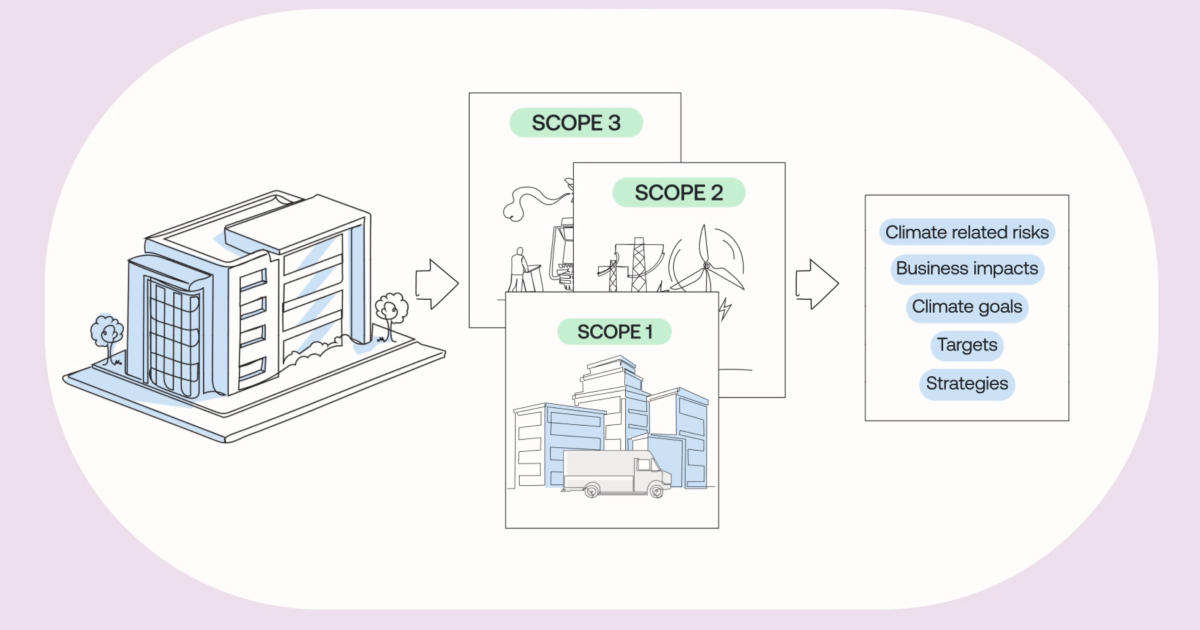When Amazon and Global Optimism co-founded The Climate Pledge nearly five years ago, we knew we wanted to bring companies together to achieve net-zero carbon emissions by 2040. We also knew joining the Pledge was just the beginning. Achieving decarbonization is essential, and now we’re equipping our signatory community with more resources and tools to help them reduce their emissions.
Passport Academy provides support for companies in the process of reaching their decarbonization goals. It’s part of Passport (the private online community for signatories of the Pledge) and offers original courses focused on key sustainability topics, all of which are taught by industry insiders. The first course, Your Practical Guide to Measurement and Reporting, is geared toward companies that are early in their decarbonization journey and is a great resource for anyone looking to brush up on industry best practices, too. Signatory leaders from Uber, Amazon, and CBRE talk through carbon accounting terminology, the basics of greenhouse gas measurements, and guidelines for reporting. Plus, you’ll hear insights from Tom Rivett-Carnac (Global Optimism) and Paul Dickinson (Carbon Disclosure Project). The self-paced course also covers topics like how to implement net-zero carbon strategies, conduct an energy audit, and more.
We sat down with Kimberly Pousman, our Global Operations Manager for The Climate Pledge, to share more about this new resource.
Interview has been edited and condensed for clarity.
Where did the idea for Passport Academy come from?
When companies commit to The Climate Pledge, they commit to three areas of action to achieve net-zero carbon emissions by 2040 : (1) regular reporting, (2) carbon elimination, and (3) credible offsets. Measuring and reporting is the first step in a decarbonization journey. It may also soon be required at the state or federal level. The idea is that if you don’t know how much you’re emitting, you can’t mitigate your emissions.
We wanted to provide signatories with tools to meet their goals, no matter where they are in their sustainability journey. We currently have nearly 500 signatories in all stages of decarbonizing. This includes companies like Amazon that have committed to carbon reduction targets and have had programs in place for many years now, as well as organizations that are eager to get started.




